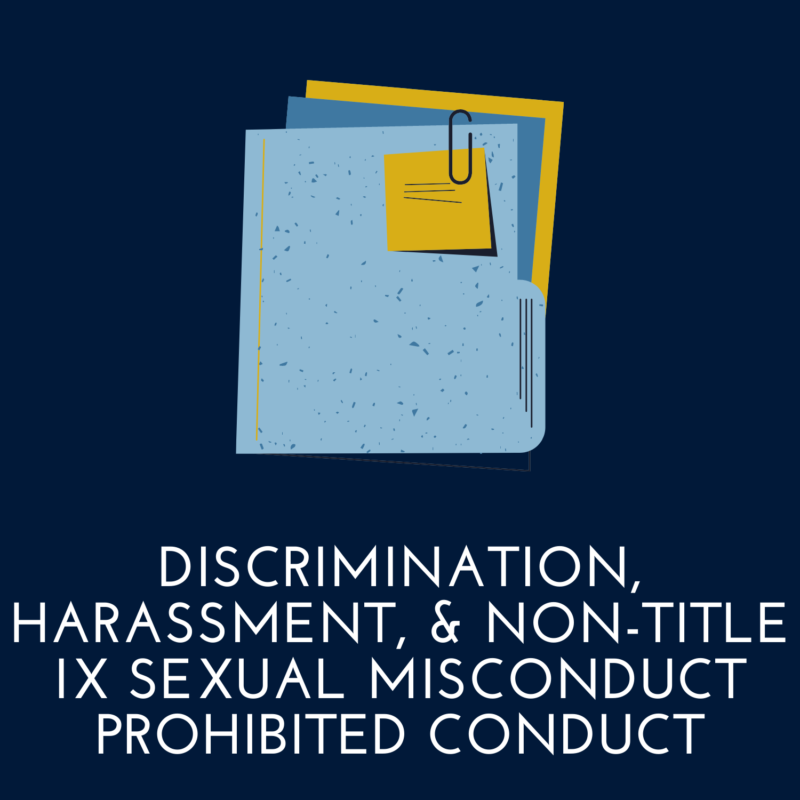Definitions

Please select the images below to read more about different definitions regarding discrimination, harassment, and sexual misconduct, both pertaining to Title IX and Non-Title IX prohibited conduct. Please also look at the New Regulation materials for more information.
Consent is a knowing, voluntary, and mutual agreement to engage in sexual activity. Consent can be given by words or actions, as long as those words or actions create clear, unambiguous permission regarding willingness to engage in sexual activity.
- Consent is active, not passive. Silence, passivity, or lack of resistance does not imply consent.
- Consent to engage in one form of sexual activity does not imply consent to engage in other forms of sexual activity.
- Consent to engage in sexual activity with one person does not imply consent to engage in sexual activity with another.
- Past consent does not imply future consent.
- Consent is required regardless of whether the person initiating the act is under the influence of drugs and/or alcohol.
- Consent cannot be given when it is the result of coercion, intimidation, force, threat of harm, or when a person is mentally or physically incapacitated.
- Incapacitation can occur as a result of mental disability, sleep, involuntary physical restraint, unconsciousness, voluntary (or involuntary) use of alcohol and/or drugs, or when a person is otherwise physically helpless.
- When consent is withdrawn or can no longer be given, sexual activity must stop.
The definition of consent does not vary based upon a participant’s sex, sexual orientation, gender identity, or gender expression.





